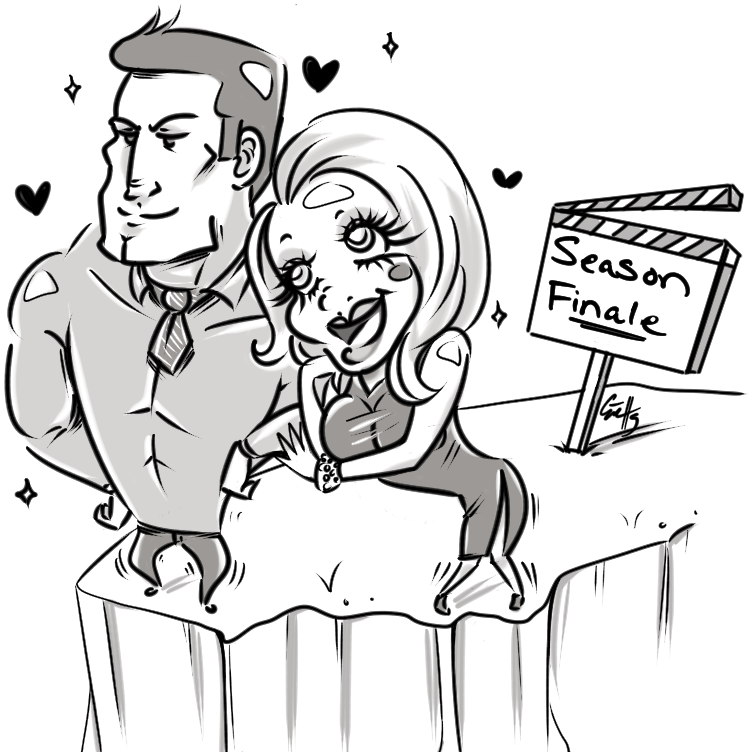Boy meets girl, girl falls for boy, boy and girl live happily ever after. That’s how I was told it works—or, how it used to work. “The Bachelor” and its spin-off, “The Bachelorette,” alter this story; boy meets 25 to 30 girls who all blindly fall for him, and happily-ever-after is all but existent.
Since its premiere in 2002, “The Bachelor” has run for 18 seasons and spurned numerous spin-off series. While the numbers are down from previous seasons, eight million Americans still tuned in last week for the premiere of the 19th season.
This all comes right in stride with the recent split of last season’s “Bachelorette” couple, Andi Dorfman and her fiancé Josh Murray.
“The Bachelor” has a horrible track record, yet after 13 years of nearly absolute failure, millions still tune in. Looking at my social media accounts on a Monday night when the show airs proves that plenty of people watch it—some even take it pretty seriously.
It is our societal obsession with the grotesque and bizarre that still allows the show to attract an audience. I say grotesque because this obviously staged and, in my opinion, unethical show has too many socially and psychologically disturbing hang-ups to even list. Yet it constantly alters and manipulates the contestants’ emotions, behavior and judgment. This show is really not that different than “My Strange Addiction” or any exposé on wacky American subcultures.
Sociologist Karen Sternheimer exposes the “cult-like” behaviors exhibited on “The Bachelor.” She provides examples by which any observer should be immediately put off. The contestants are under the total control of the producers—they are cut off from communication from the outside world (friends, family, news, etc.) and they are conditioned to feel lucky when they are chosen to spend time with the bachelor. While the bachelor typically has physical relationships with many of the women at once and the contestants are aware of this, within the new alternate reality in which they live on the show, they are OK with these “infidelities” on the part of the person who they are competing to “win.”
This obvious social manipulation through the instillation of groupthink in the gaggle of beautiful competitors is just scratching the surface. The show features weird sex issues (such as the nationally televised slut-shaming in Juan Pablo Galavis’ season), the incredible exploitation of love and relationships, and the idea that love is a game that you must win.
The narcissistic dates are equally appalling, as well as the lengths the producers go through to psychologically entice the contestants to stay in the competition and desire the favor of the charismatic bachelor or bachelorette. An intense romantic connection is not what keeps the men and women competing for love, it’s the fact that they are offered the ultimate getaway—no work or responsibilities, amazing accommodations, exotic locations, and the opportunity to dress up and feel like a celebrity every night.
What the media describes as love Shauna Springer, Ph.D., describes as “unsustainable collisions.” This is an honest assessment, and a really poor example to set for a society with increasing divorce rates and a multitude of other factors, such as a decline in face-to-face communications facing the individuals inhabiting the land of “singledom.”
But ABC may be evolving. During the past 18 seasons, viewers have gotten the gist of the show—the romance is usually a fantasy that implodes a few weeks after the dramatic proposals. However, lately the shows have touched on topics, which, for once, mimic reality. For example, in Dorfman’s “Bachelorette” season, the show’s characters acknowledged that race is still a very real barrier in the dating world. In Galavis’ season, the women called him out for being the jerk that he is and united against him.
While the locations and situations become more exotic and the dates more egotistical, real world issues have begun to be approached by both the producers and contestants. This is a minor victory of which I hope to see much more.
Most of us just want a happy ending, whether it be through romantic love, a career or a certain accomplishment. From these shows, we are trained to observe a version of a happy ending instead of being given the tools to create one for ourselves. I wish we had the opportunity to observe the mechanisms of a genuine romantic relationship. I wish we were given a realistic model of love in the media.
Thanks to the countless problems with the shows, I find watching “The Bachelor” and “The Bachelorette” difficult. The recent split of Dorfman and Murray provided me with the conclusion that I think is necessary to any reality dating show—love is difficult.












